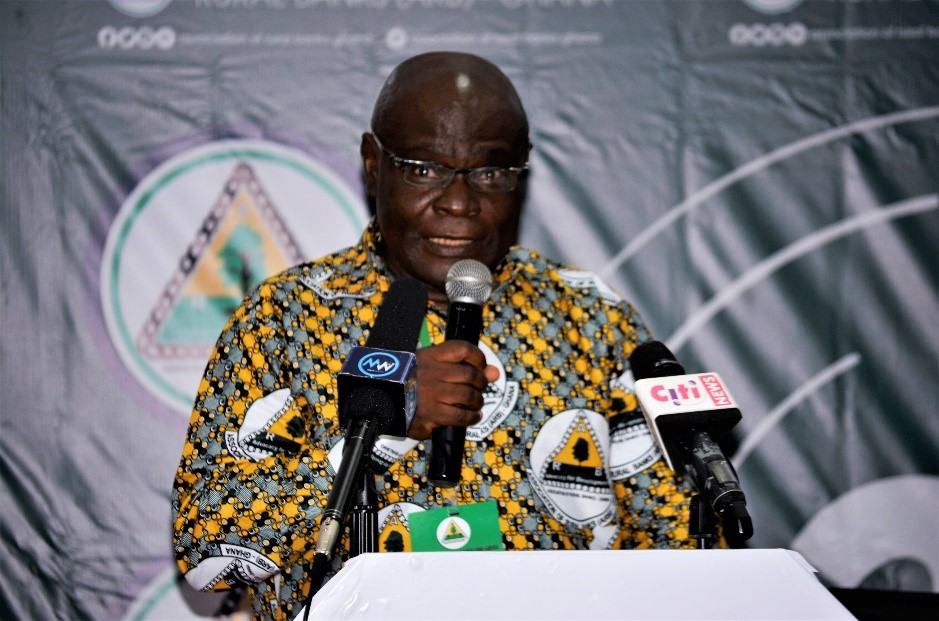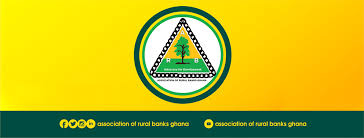Rural and Community Banks (RCBs) seek to petition the Bank of Ghana’s (BoG) directive to halt the distribution of dividends to shareholders so as to ‘plough back profits’ for their operations following the impact of the COVID-19 pandemic.
The President of the Association of Rural Banks, Mr. Daniel Ohene Kwaku Owusu, has intimated that even though the reason for this directive is to boost capital formation to strengthen the capital base of banks to enable them absorb any contingencies in the course of their operations, the implementation of the directive must be done in moderation taking shareholders into consideration.
RCBs that are operating in a ‘sound base’ and profitable should be excluded and allowed to pay dividend to its shareholders, Mr. Owusu added.
The Associations’ President made these comment at the 21st Biennial General Meeting (BGM) of the Association of Rural Banks themed ‘Financial Sector Reforms and its Impact on Rural Banking – Challenges and Benefits’.
Earlier on this year, the Bank of Ghana (BoG) gave a directive to banks and Specialized Deposit Taking Institutions (SDIs) to refrain from declaring and paying dividends or making other distributions to shareholders until BoG deems that the institution meets the regular prudential requirements and is not relying on the additional liquidity released by its policy measures to pay shareholders.
Although this initiative by the regulator is aimed at mitigating the disruptions brought by the global outbreak of COVID-19 on the financial sector, shareholders have expressed their disapproval, Mr. Owusu opined.
“The suspension of the declaration of dividend for 2019 and 2020 by the Bank of Ghana, even though with the best of intention, is causing disaffection among shareholders. We, therefore, appeal to the Bank of Ghana to re-consider the matter of payment of dividend for the 2020 financial year”.
The emergence of COVID-19 pandemic which hit the shores of Ghana early March this year has interrupted the normal operations of the entire banking industry resulting in inadvertent expenditures, drop in lending rates, rescheduling of loan repayments, postponement of assignments and work programs adversely affecting RCBs, Mr. Owusu mentioned.

Recounting the revocation of the licenses of some failed financial institutions, he said this marred the confidence of the public in the banking sector, subsequently giving rise to panic withdrawals leading to RCBs with weak liquidity shocks.
The Association of Rural Banks in collaboration with the ARB Apex Bank vigorously pursued a number of interventions which helped to reinforce the operation of RCBs, however, “the situation generally impacted adversely on the 2019 profits and the Capital Adequacy Ratios of the RCBs as well as the capacity and extent of extending credit facilities,” he disclosed.
Mr. Owusu went on to commend the BoG and the government for their interventions to address this issue and further petitioned the government to expedite the payment of the validated locked up funds by the Securities and Exchange Commission (SEC) “to further improve on the fortunes of the affected RCBs”.
The Managing Director of ARB Apex Bank, Mr. Kojo Mattah, sharing his thoughts said the global deposits of RCBs have witnessed an upward trend. This is because existing customers and customers from defunct banks, Micro-Finance Institutions and Finance Houses have become comfortable to move their investment options to RCBs.

This is as a result of the efforts by the BoG and the ARB Apex Bank to assuage fears amongst customers about their mutual support for the operations of RCBs, Mr. Mattah commented.
The Managing Director further acknowledged that the resolution of the banking sector crisis leading to the strict and equitable application of regulations to players in the sector have caused the RCB sub-sector to sit up to its responsibilities.





















